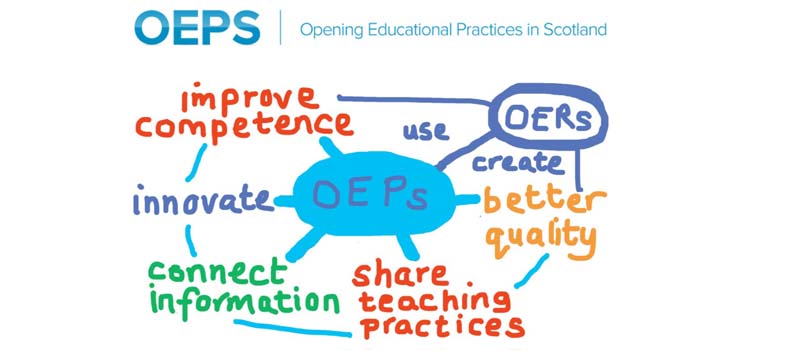Supporting collective learning in workplace and community settings
Introduction
There is a huge amount of free learning material available on the internet but the sheer quantity of resources available can be overwhelming. Some people we have worked with have described looking for online courses as like entering a vast library without a map or a catalogue of the books. Exciting but scary, difficult to engage with and know where to start. In this course, we hope to give you some ideas about how to help potential learners find their way. We will concentrate on starting places and pathways that support people new to online study or returning to any form of study after a break.

The free online courses we will introduce you to in this course are short, typically in the range of between 5 and 25 hours total study time. Learners who successfully complete one of these courses may receive a certificate or a digital badge (more on badges in section 1.3).
Free online courses are different from the formal accredited courses that you might study at school, college or university. Accredited courses allow you to accumulate credit points, which can count towards formal qualifications. One credit point is equivalent to ten hours of study and the modules that make up formal qualifications are usually in the range from ten to sixty credits. So short, informal online courses represent a smaller time commitment and in most cases don’t directly lead to credit. However, they can provide an excellent stepping-stone to full-time study.
Learning is very personal and many adults have had experiences that dent their confidence. Often they don’t value their life experience or all the things they have learnt outside the formal education system. At the same time, they may believe that only certain kinds of classroom and teacher led environments are valid forms of learning. In this course you will tackle these misapprehensions and develop some simple models for helping adult learners support each other, build their confidence and develop skills that enable them to move on to more formal learning should they choose to do so.
The course is in two parts. In the first we look at how to find and choose appropriate online courses. In the second we develop some basic ideas of how to organise group learning.
This course has been developed in Scotland by the Opening Educational Practices in Scotland team and draws on insights and good practice from a wide range of partners. We held a number of workshops with Scottish Union Learning and we are particularly grateful to them and the Union Learning Representatives who attended workshops for their ideas. We have also drawn ideas and inspiration from initiatives to support Open Learning Champions in workplace and community settings developed by the Open University in Wales and Scotland.
